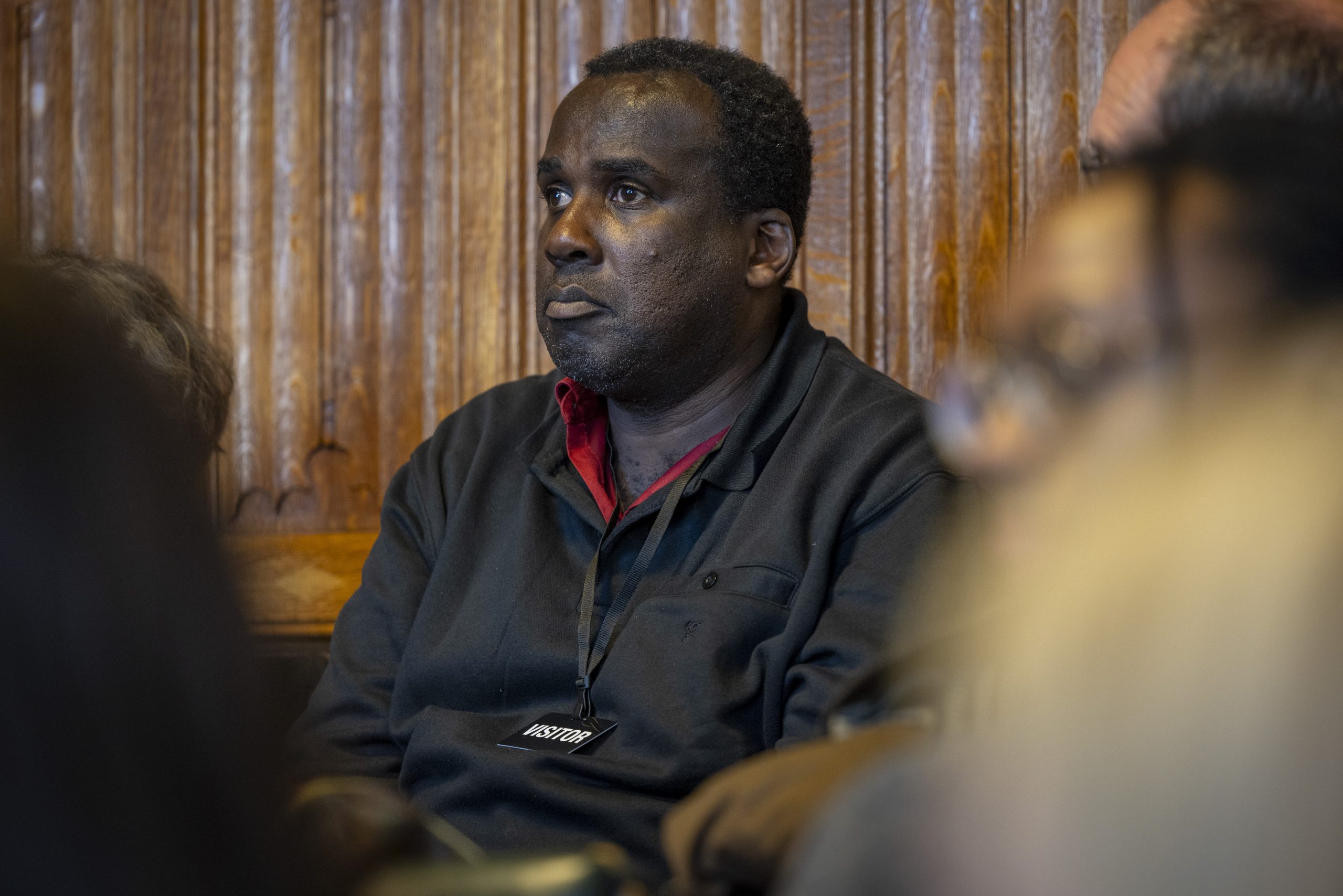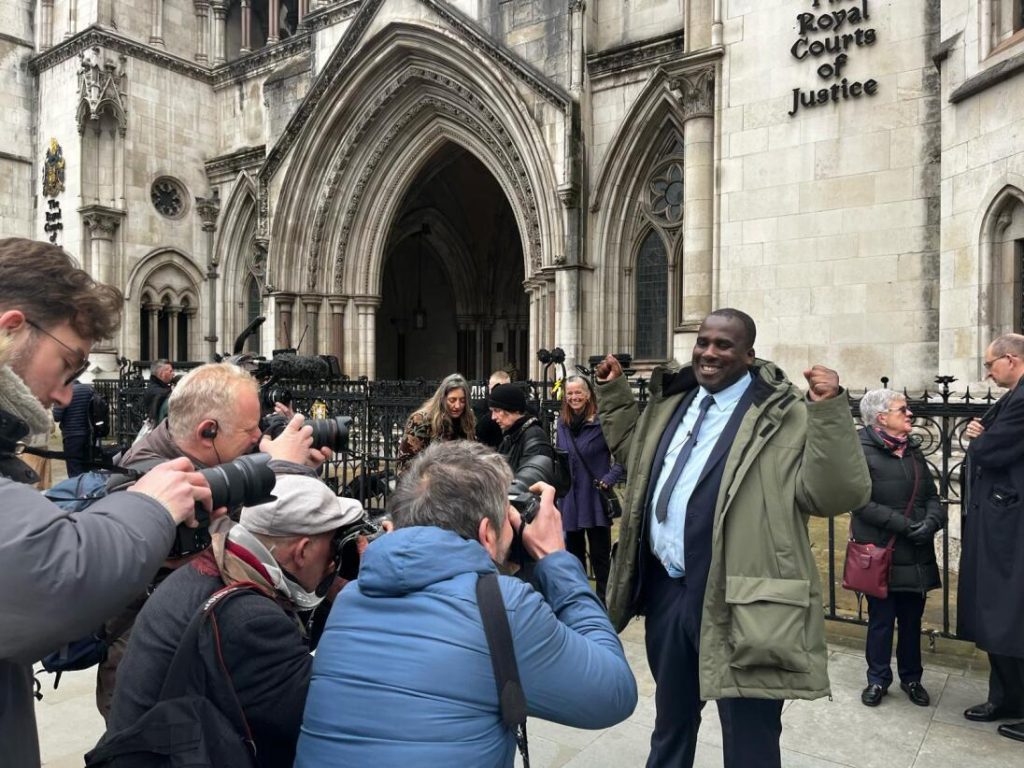On the 11th September 2024, the Court of Appeal published the successful Appeal Judgment in the case of Oliver Campbell. At 32 years and nine months it is one of the longest miscarriages of justice of a living person in British legal history. Mr Campbell is a Black man. Although there was no evidence of overt, verbalized, racism in this case, the role of race in explaining why Mr Campbell was falsely convicted, and why it took so long for his case to be successfully overturned, requires, in my opinion, review – writes Alison Beck.
In 1999, the MacPherson Report following the Stephen Lawrence Inquiry exposed significant racial discrimination in the police force, which affected the treatment of people of colour. The report recommended reforms aimed at tackling institutional racism within the police and broader public institutions, including better accountability and stronger anti-racism measures. The Lammy Review (2017) called for improved data collection, better transparency, and reforms to ensure fairer outcomes for people of colour. The Criminal Justice Joint Inspection Report (2021) unequivocally found that Black and Asian defendants faced systemic bias throughout their interactions with the criminal justice system. The Lammy Review (2017), found that Black people were more likely to be stopped and searched and were therefore disproportionately represented at all stages of the criminal justice process. Over-policing increases the chances of Black people being caught up in the justice system, even when innocent, making them more vulnerable to wrongful accusations and false convictions. However, despite the over-representation of Black and minoritized people throughout the criminal justice process, they seem to be underrepresented in successful appeals against miscarriages of justice. Why is this? How can we find out more and alter our systems to address this fundamental inequality?
The Joint Committee on Human Rights (2020) report found that Black people are more likely to face harsher sentences and are less likely to receive fair treatment during trials. Multiple reviews, reports, and case analyses have suggested that Black people are disproportionately affected by miscarriages of justice, and that their overrepresentation in wrongful convictions is part of broader systemic racial bias in the criminal justice system. In this context, therefore, how is it possible that the impact of race is not being actively explored and examined in the recent Court of Appeal case which successfully overturned the conviction of Oliver Campbell?
- Dr Alison Beck gave critical evidence before the Court of Appeal in the Oliver Campbell case that led to the overturning of his conviction.
- Dr Beck is a consultant clinical, forensic and neuropsychologist and systemic psychotherapist. She has worked in clinical practice for the NHS for over 30 years and for further years in other countries. She recently retired from Director of Psychology and Psychotherapy at South London and Maudsley NHS Trust. She continues to provide expert assessments and evidence in medico legal cases which she has done throughout her career. She also continues to add to her long list of academic publications. She has worked for charities and in the humanitarian sector in a number of countries and takes a keen interest in human rights.
- Oliver Campbell’s case has featured extensively on the Justice Gap: you can hear Oliver speak in our podcast; read Nicholas Reed Langen’s long read in the latest issue of PROOF magazine; and Jon Robins’ on concerns about the Court of Appeal’s ‘narrow’ and ‘begrudging’ judgment (‘So much was missed’).

Oliver Campbell at PROOF launch
Mr Campbell was convicted on 11th of December 1991, when he was just 21 years old, of the murder of a shopkeeper, Mr Baldev Hoondle in Hackney on 22nd July 1990. The circumstances were that two young Black men had attempted to rob Mr Hoondle’s shop and one of them shot him dead at close range. The prosecution alleged that Mr Campbell was the gunman. Perhaps the ‘strongest’ evidence they relied upon was Mr Campbell’s apparent ‘confessions’. These confessions were made at various times before and during police interviews. The circumstances of the confessions, and Mr Campbell’s experience at the time he made them, merit closer scrutiny.
There was a previous unsuccessful appeal in 1994. This appeal included new psychological evidence which revealed the extent of Mr Campbell’s learning difficulties. This new information was not available at the time of trial; however, the extent of Mr Campbell’s very significant brain damage was obvious and to some extent noted at trial. It was argued at the 1994 appeal that had the new psychological evidence been available at the time of the trial, the jury might have reached a different conclusion. In my view the new psychological evidence helps to partly explain why Mr Campbell might have made the frankly absurd confessions. It does not explain so fully, why these confessions were believed. In my view, the fact that the Court accepted Mr Campbell’s ridiculous confessions warrants further consideration as part of an investigation into the role of race in this miscarriage of justice.
In 1994, the psychological evidence was dismissed out of hand. It was not until 2024, when I presented some more new psychological evidence to the Court, that the psychological evidence was suddenly considered pivotal in overturning the conviction. Almost no reference was made in the 1994 appeal, nor in the 2024 appeal and the subsequent Judgment, to Mr Campbell’s experience as a young Black man, save for my reference in psychological evidence to his ‘cumulative disadvantage’ (Scherr et al 2020).
Among the grounds for the appeal submitted by the appellant’s KC, Mr Michael Birnbaum, was that the police interviews were not compliant with modern standards of acceptable police practice. Mr Birnbaum alleged that police questioning was “misleading, bullying and unfair”. There were 14 police interviews and Mr Campbell’s apparent confession largely took place in the eleventh one. It took place in the absence of a solicitor, but in the presence of Mr Campbell’s foster mother. Ostensibly she was acting as an Appropriate Adult, although she did not understand this role and given her limited understanding of his mental impairment was unlikely to have been able to offer the required assistance to either Mr Campbell or the police.
As a Black woman herself, her experience also warrants consideration. As does Mr Campbell’s wish to look after her and make sure she was alright. The Appeal Judgment dismissed any criticism of the police. However, even if the police practice was ‘acceptable’, it was unlikely to have been the best approach to extract reliable information from a young Black man in the presence of his Black foster mother.
Mr Campbell was impacted by being a young Black man who had grown up, disadvantaged, in London (consider the Stephen Lawrence Inquiry). The racial background of the police interviewing Mr Campbell was not discussed. I cannot believe that this went unnoticed by Mr Campbell. It could have contributed to his attempt to please them by ‘creating’ the false confession they seemed to want from him. If the legal system wants to secure reliable evidence in police interview, then much more attention will need to be given to matters of this sort.
*
I am a clinical psychologist. I was called to give evidence about changes in the state of psychological science compared to what was known at the time of his trial. In the evidence I gave the Court, I said that it seemed that when interviewing Mr Campbell, the police believed they had got their man. The role of race in influencing this belief has not, to my knowledge, been explored. Furthermore, I explained that the approach of the police was unlikely to have extracted reliable information. Finally, I advised that Mr Campbell’s relationship to his foster mother could have undermined the reliability of his apparent confession.
Mr Campbell said, and from reading the police transcripts I concur, the police brought undue pressure to bear on him. In my view, their approach was not acceptable. I believe it was bullying and I wonder why the appeal judges did not acknowledge this. Perhaps they were concerned about opening floodgates for future appeals?
However, even if the police behaviour was acceptable, Mr Campbell has a very significant mental impairment (and the additional trauma of growing up in the care system). This left him struggling to provide the police with the explanations they required, and (importantly for the case) made him unable to explain why he could not give the police the information they asked for. A different approach was required to extract reliable evidence from him.
I believe, and I told the Court of Appeal, that given his disadvantages, Mr Campbell’s self-confidence was understandably low at the time of the police interviews. However, he has some really positive qualities which have helped him survive in the world. He is an affable man, of good character, who is well liked. He works hard to please people, to tell them what they want to hear and to be accepted by them. As a result, he does not draw attention to, or talk about, his mental impairment. He might even try to make it seem as if he understands things he does not, without realising what he is doing. He means no harm. He just wants to fit in. If the police failed to recognize (or chose to ignore) the extent of his mental impairment, then he could not describe his difficulties to them. Better safeguards are needed.
In my view, Mr Campbell is a man who believes himself (probably accurately) to be relatively powerless. He trusts those around him to do the right thing and to make the right decisions. He needs them to look after him. Prior to his conviction, he believed in the justice system. It is possible that he thought that whatever he said, the truth would come out. Evidence from his behaviour at the time of his conviction indicates that Mr Campbell believed (as he probably still believes) that his main source of power came from pleasing others. The police seemed to want him to confess. One theory, which I put before the Court of Appeal, was that he may have thought he would be able to leave the police interview (and crucially also enable his distressed and embarrassed foster mother – who it will be remembered was acting as an Appropriate Adult for him – to leave) if he confessed.
In my view, Mr Campbell seems to have assumed that people more powerful than him would get to ‘the truth’. He hoped (incorrectly) he would be able to explain the truth to the judge in court. Unfortunately, his mental impairment and poor articulation, amongst other things, meant he was not well placed, to explain to a court why he made a false confession.
I wonder also about the racial make-up and unconscious bias of the jury at the original trial. We know from the OJ Simpson trial how much these things matter. Race will also likely have played a role in decision-making in the 1994 and 2024 appeals. Isn’t it time that this was explored?
*
Mr Campbell’s confessions to the police were objectively and obviously flawed and ridiculous. He described a string contraption in which he claimed to have held the gun which could have inspired a Rube Goldberg illustration. It would have required him to remove the gun with his right hand which, as a result of his brain injury, was very much weakened and unlikely to have been the hand he would have held a gun in, had he been the gunman. It is not clear why the police or the courts accepted this account – could race have played a role? Did they believe what they wanted to believe?
The extent of Mr Campbell’s mental impairment and the interaction of that with other factors including race (which I described to the Court of Appeal as amounting to ‘cumulative disadvantage’, Scherr et al 2020) were not understood at the time of the original trial. However, we are now in 2024, should we not be better placed to consider these matters?
Mr Campbell was convicted, served his sentence and was released in 2002 on life licence. He lived with this hanging over him until 2024. In an article in The Guardian in 2023 he gave a moving account of the life he was never able to have as a result.
My evidence to the Court of Appeal was that psychological science has advanced considerably since the time of the original trial and that were he tried today the trial outcome would likely have been different. This was accepted by the judges at appeal. However, emphasis was placed on Mr Campbell’s mental impairment and not his experiences as a Black man.
The ‘elephant in the room’ in this case is race. There are many ways in which race might be important and it strikes me as beyond belief that these are not being actively investigated to see what we can learn from this important case. Consideration must surely be given to unconscious bias on the part of individuals involved in this case, likewise any systemic bias or institutional racism, all were likely to have been present.
I gave evidence as an expert psychological witness on matters within my area of expertise. I am a White woman. Race and racism are not my area of expertise. However, I did notice that the Court of Appeal judges were all White, the senior barristers were all White, the professional experts were all White and I wondered, given the findings from all the important reviews, reports, and case analyses (some of which are highlighted at the beginning of this article) whether someone able to provide expertise from a Black perspective might not have helped the Court to consider if Mr Campbell’s race could have compromised the decision-making of the Court.
It seems to me that no consideration is being given to the possibility of investigating whether this miscarriage of justice might have occurred as a result of racism. This seems vital given the previously identified depth of the problem of racism in the legal system. This case is exceptional and a mine of potentially useful information to help reform the justice system. Proven miscarriages of justice of this order, involving Black people, are rare and should in my view be fully considered from the perspective of race.
The Judgment acknowledged that “clinical psychology now puts more emphasis on an interviewee’s personal experience” (para. 106) however, there were no witnesses called to offer expert evidence about the risk that race may have brought for false confession. I raised the question of what it must have felt like for Mr Campbell as a Black man, who did not enjoy the same power as his White counterparts, to be in those police interviews. I do not know how this evidence was received, but the Judgment did not find the police to have behaved inappropriately.
Of course, we now seek to be ‘trauma-informed’ and to be mindful of the impact of ‘adverse childhood events’ (ACEs) in all institutions and practices. This is an area within my expertise. The original ACEs study in the mid-1990s by the American company Kaiser Permanente surveyed 17,000 participants to explore the impact of traumatic childhood events on adult health. The ACEs study found a direct link between childhood trauma and adult chronic disease, incarceration, and employment challenges. The higher the number of ACEs, the greater the incidence of negative outcomes.
Mr Campbell clearly experienced multiple ACEs (mental impairment, parental abuse and abandonment, growing up in care to name just a few). People who suffer multiple ACEs are much more likely to suffer a range of problems in adulthood which put them at risk of exploitation and abuse. Black people are more likely to experience racial discrimination. This is an ACE. Furthermore, but separately, this trauma can be passed down from one generation to the next (see Aileen Alleyne: “The Burden of Heritage: Hauntings of Generational Trauma on Black Lives” 2022 Karnac). It is possible that Mr Campbell’s Black foster mother may have inadvertently transmitted her experiences of abuse and trauma, and how to respond in the face of it, to Mr Campbell. She may have inadvertently or overtly communicated to him something which in turn might have influenced him to make a false confession. Ms Alleyne in her book highlights that Black parents may internalize self-limiting stereotypes and inadvertently pass these on. We do not know what she said to him, but Mr Campbell seems to have felt that he had to make a confession to bring the police interviews to an end. We do not know what Mr Campbell’s experience as a Black man was and we will not until this is explored.
Race and racism matter in our legal system as they do in every walk of life. They contradict our sense of justice and fairness. This case is clearly tremendously important not only because it is a miscarriage of justice but also because it involved a Black man.
Questions must be asked about the role of race in the resulting wrongful conviction. Questions must also be asked about how systematically the data urged for in the Lammy Review (2017) is being collected? How is it being used to address potential biases in the legal process? How effective are independent oversight and accountability mechanisms?
Given the complete lack of attention to race in Mr Campbell’s case, a proven and tragic miscarriage of justice, what is the criminal justice system doing to actively seek to understand the elephant of racism in the Courtroom?
Buy PROOF magazine, support the Justice Gap








